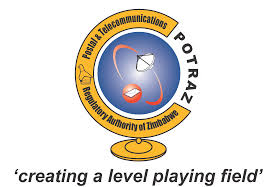
Staff Reporter
THE Postal and Telecommunications Regulatory Authority of Zimbabwe (Potraz) has urged the government to allow greater use of mobile money platforms in the country as a way to bridge the financial divide.
“Mobile money services are expected to continue playing a key role of bridging the financial divide by providing convenient, safe, secure and cheap financial services in areas where many Zimbabweans have no access to formal banking systems,” Potraz director general Gift Machengete said, while presenting the second quarter industry report last week.
He also singled out the role played by mobile money in curbing the spread of Covid-19, that has infected 7 725 people and claimed 227 lives in Zimbabwe (as of September 23, 2020) since the beginning of the pandemic earlier this year.
Machengete said the Covid-19 pandemic demonstrated the critical importance that telecommunications infrastructure plays in keeping businesses, governments and societies connected and running.
“All things being equal, volumes of mobile money payments are expected to improve due to the significant increase in the number of financial services offered on mobile money platforms,” he said.
Zimbabwe has four mobile money platforms, namely Ecocash, OneMoney, Telecash and MyCash.
But their operations have recently come under heavy scrutiny, with the Reserve Bank of Zimbabwe, which has regulatory oversight of their operations, introducing a raft of measures restricting their services amid accusations that the mobile money service providers have been complicit in the activities of their agents and some bulk payers, whom the regulator accuses of fuelling the foreign currency black market and destabilising the local currency.
- Chamisa under fire over US$120K donation
- Mavhunga puts DeMbare into Chibuku quarterfinals
- Pension funds bet on Cabora Bassa oilfields
- Councils defy govt fire tender directive
Keep Reading
The mobile money companies, however, deny the charges.
The restrictions have resulted in a slight dip in the use of mobile money in the second quarter, for the first time ever, following the central bank’s restrictive measures, including daily transaction limits to $5 000 and the banning of mobile money agents and most bulk payers.
Statistics from Potraz show that in a sector where EcoCash is the market leader, the total number of active mobile money subscriptions declined by 2,8% to 7 457 662 in the second quarter, down from 7 673 201 recorded in the first quarter of 2020.











